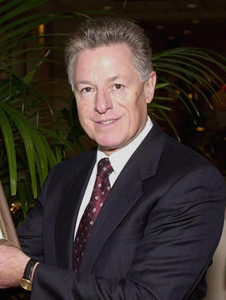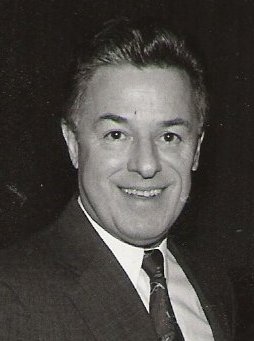James Florio facts for kids
Quick facts for kids
Jim Florio
|
|
|---|---|
 |
|
| 49th Governor of New Jersey | |
| In office January 16, 1990 – January 18, 1994 |
|
| Preceded by | Thomas Kean |
| Succeeded by | Christine Todd Whitman |
| Member of the U.S. House of Representatives from New Jersey's 1st district |
|
| In office January 3, 1975 – January 16, 1990 |
|
| Preceded by | John E. Hunt |
| Succeeded by | Rob Andrews |
| Member of the New Jersey General Assembly | |
| In office January 13, 1970 – January 3, 1975 Serving with John J. Horn (1970–1974),
Ernest F. Schuck (1974–1975) |
|
| Preceded by | Lee B. Laskin |
| Succeeded by | Ronald Casella |
| Constituency | 3rd district (1970–1974) 5th district (1974–1975) |
| Personal details | |
| Born |
James Joseph Florio
August 29, 1937 New York City, U.S. |
| Died | September 25, 2022 (aged 85) Voorhees Township, New Jersey, U.S. |
| Political party | Democratic |
| Spouses |
Maryanne Spaeth
(m. 1960; div. 1985)Lucinda Coleman
(m. 1988) |
| Children | 3 |
| Education | Trenton State College (BA) Columbia University Rutgers University, Camden (JD) |
| Military service | |
| Allegiance | |
| Branch/service | |
| Years of service | 1955–1975 |
| Rank | Lieutenant Commander |
James Joseph Florio (born August 29, 1937 – died September 25, 2022) was an American politician. He was a member of the Democratic Party. Florio served as the 49th Governor of New Jersey from 1990 to 1994. He was the first person of Italian descent to become governor of New Jersey. Before that, he was part of the New Jersey General Assembly from 1970 to 1975. He also served in the United States House of Representatives from 1975 to 1990.
Contents
Early Life & Education
James Florio was one of three sons. He grew up in Brooklyn, New York. His father was of Italian descent. His mother had Scottish, Irish, and German roots. Florio went to Erasmus Hall High School.
He earned a bachelor's degree from Trenton State College in 1962. He then studied at Columbia University. Later, he received a law degree from Rutgers School of Law–Camden in 1967. After law school, he worked as an assistant city attorney for Camden, New Jersey.
Florio also served in the United States Navy. He was an enlisted man from 1955 to 1958. He continued as a reservist until 1975. He reached the rank of lieutenant commander.
Start of Political Career
Florio began his political career in the New Jersey General Assembly. He was elected in 1969 and 1971. He represented parts of Camden County. In 1973, he was elected to represent the 5th Legislative District. This district included parts of Camden and Gloucester County.
In November 1974, Florio was elected to the United States House of Representatives. He served in Congress from January 3, 1975. He resigned on January 16, 1990, to become governor.
Key Laws in Congress
While in Congress, Florio helped create important laws.
- He wrote the Superfund law in 1980. This law helps clean up the most polluted sites in the country.
- He also wrote the Railroad Deregulation Law. This law helped save the nation's freight railroads.
- He co-sponsored the Exon-Florio Amendment. This amendment allows the U.S. government to review foreign takeovers of American companies.
Becoming Governor of New Jersey
Florio tried three times to become Governor of New Jersey. He ran in 1977, 1981, and 1989. His first two attempts were not successful. In 1981, he lost by a very small number of votes. This was the closest election in New Jersey history.
Finally, in the 1989 New Jersey gubernatorial election, he won. He defeated Republican Jim Courter with 61% of the vote. During his campaign, Florio said there was "no need for new taxes."
Governor Florio's Time in Office
Florio became governor during a tough economic time. New Jersey faced a large budget problem. To fix this, Florio asked for a big tax increase. This included raising the sales tax and other state taxes. It was the largest tax increase in any U.S. state's history.
The money from these taxes helped balance the budget. It also increased funding for schools. Florio also cut 1,500 government jobs. He also reduced special benefits for state officials.
Education Funding Changes
Governor Florio also changed how school money was given out. His plan was called the Quality Education Act. It sent more money to urban and rural school districts. This meant some suburban districts received less funding. Many people in suburban areas were upset by these changes.
Public Reaction and Challenges
The tax increases led to a big public protest. A group called "Hands Across New Jersey" was formed. They held rallies against the new taxes. Many people put "Impeach Florio" stickers on their cars.
In the 1991 New Jersey elections, voters showed their anger. Democrats lost their majority in the state legislature. Republicans gained control of both houses. They even passed a law to roll back the sales tax. Florio vetoed it, but Republicans overrode his veto.
Florio also signed a law to reduce auto insurance costs by 20%. In 1990, he passed strict laws on owning or selling certain firearms.
1993 Election and Beyond
By 1993, Florio's approval ratings had improved. He tried to gain support from conservative voters. He put in place stricter rules for welfare payments. He also had strong support from President Bill Clinton.
However, Florio lost his re-election bid in 1993. He was defeated by Republican Christine Todd Whitman. The tax hikes were a major reason for his loss. He was the first Democratic governor in New Jersey to lose a re-election vote since 1947. Whitman won by a very small number of votes.
After Being Governor
After his time as governor, Florio continued to be active. In 2000, he ran for a United States Senate seat. He lost the Democratic nomination to Jon Corzine.
Florio later served as Chairman of the New Jersey Pinelands Commission. He had helped create the Pinelands National Reserve when he was in Congress. He also taught at Rutgers University.
Personal Life and Passing
Florio was married twice. He had three children.
James Florio passed away on September 25, 2022. He was 85 years old. He died from heart failure in Voorhees, New Jersey.
Honors
In 2014, Florio was added to the New Jersey Hall of Fame. In 2017, Camden County named a main administrative building after him. It is called the Governor James J. Florio Center for Public Service.
 | Selma Burke |
 | Pauline Powell Burns |
 | Frederick J. Brown |
 | Robert Blackburn |


